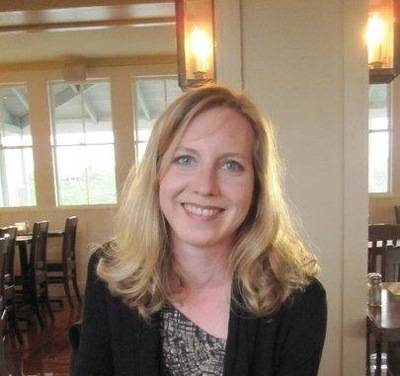
Lesley Jenike
Poetry
Lesley Jenike is Associate Professor of English and Head of the English and Philosophy Department at the Columbus College of Art and Design. Her first book is Ghost of Fashion (CW Books, 2009) and her second, Holy Island, will be published by Gold Wake Press in 2014. Her poems have appeared recently or will appear soon in The Southern Review, Tampa Review, Birmingham Poetry Review, Waccamaw, Gulf Stream and Smartish Pace. She’s been honored with fellowships and scholarlships from the Virginia Center for Creative Arts, the Sewanee Writers’ Conference, the Vermont Studio Center, and the Ohio Arts Council.
Had I Been Any God of Power
thirty we were flat under his office florescence.
He led me to a tiny room yoked to a back-
lit screen, white-on-white black nurses slack
around it, overcome by its singular image,
like the coastline of some furtive island,
its routes inland choked by plaque thick as kudzu.
I imagined walking along it, and cuing the wind
to lift my hair. Or it was more like a tributary
glutted with love. See, he said, the blocked artery?
Yes. The body’s so hard, such awful things inside it.
So I followed him on his rounds, carrying his kit,
still stuck on the floating figure of that vessel—
post-stent, pulsing—as if it were my father’s vessel
hard driving against the ocean’s current,
till on the ride home, I couldn’t see the river,
only a long, listless body in bed lying face-up,
and Dad as conjurer, striving again to raise it.
“ The title ‘Had I Been Any God of Power’ comes from Miranda's display of empathy for the men shipwrecked by Prospero's storm at the opening of Shakespeare's The Tempest. I have a little pet theory about Shakespeare: The play you need most at any given moment in your life will find you. Hamlet was for my early twenties, and apparently The Tempest has been for my early to mid-thirties. I love the play because it allows me to think about father/daughter relationships and the nature of wisdom as it relates to power. In my poem, the father, a cardiologist, is Prospero, and the speaker is Miranda, who both admires and fears her father's power to heal. ”
